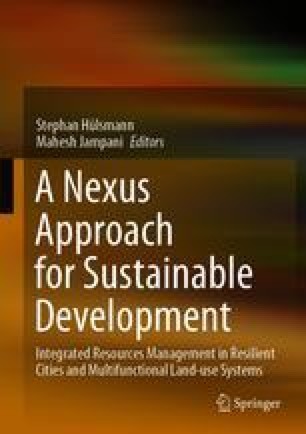Nutrient recovery for use in agriculture: economic assessment of decentralized compost business model in Nairobi
Abstract
Large cities in developing countries are facing the challenge of rapid urban population growth, which results in increasing waste generation. In Nairobi, the solid waste situation is characterized by low coverage of collection, pollution from uncontrolled dumping, inefficient public services, unregulated and uncoordinated private sector operators and lack of key solid waste management infrastructure. About 3,121 tons of municipal solid waste (MSW) is generated daily, of which about 850 tons are collected and the remaining is burnt or dumped in unauthorized sites or landfilled in the Dandora dumpsite causing health and environmental problems. The recovery of nutrients from the organic content of MSW for reuse in agriculture has the potential to address the dual challenge of waste management and soil nutrient depletion. This study assessed the economic and environmental impact of decentralized composting business model in Nairobi based on a comparison with the baseline scenario using an indicator expressed in tons CO2 equivalent. The cost–benefit analysis was based on data collected from existing compost plants in Kenya. To assess the sensitivity of the results to variation in input variables, a simulation model was developed using the Monte Carlo method. The decentralized composting business model resulted in a net GHG emission saving of 1.21 tons CO2-eq/ton of compost, being both financially and economically feasible with more than 70% chance of economic success. Assessing the economic and environmental impact is an important tool for decision making and to ensure that the business model results in desired benefits to society.

